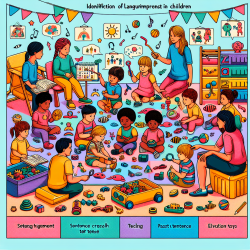Understanding the Impact of Emotion Regulation Therapy on Adolescents
As practitioners dedicated to improving the mental health outcomes of adolescents, we are often on the lookout for evidence-based therapies that can make a real difference. A recent study on Emotion Regulation Individual Therapy for Adolescents (ERITA) offers promising insights into treating nonsuicidal self-injury disorder (NSSID). This blog will delve into the study's findings and how they can be applied in clinical practice.
The Study at a Glance
The research, titled "Emotion regulation individual therapy for adolescents with nonsuicidal self-injury disorder: a feasibility study," was conducted to evaluate the effectiveness of ERITA. This 12-week behavioral treatment targets both NSSI and its underlying mechanism: emotion regulation difficulties. The study involved 17 adolescent girls aged 13–17, who underwent self-report and clinician-rated assessments at various stages of the treatment.
Key Findings
The study's results are compelling, showing significant improvements in several areas:
- Reduction in NSSI frequency and versatility.
- Enhanced emotion regulation abilities.
- Decreased self-destructive behaviors.
- Improved global functioning.
These improvements were not only maintained but further enhanced at a six-month follow-up, indicating the long-term benefits of ERITA.
Implications for Practice
For practitioners, these findings highlight the importance of integrating emotion regulation strategies into therapy for adolescents with NSSID. Here are some actionable steps:
- Adopt ERITA Techniques: Incorporate individual therapy sessions focusing on emotion regulation, using the ERITA framework as a guide.
- Monitor Progress: Regular assessments can help track improvements in emotion regulation and NSSI behaviors, allowing for timely adjustments in therapy.
- Engage Parents: Involve parents in the therapeutic process through online support programs, enhancing the treatment's effectiveness.
Encouraging Further Research
While the study provides a solid foundation, further research is necessary to explore ERITA's efficacy across diverse populations and settings. Practitioners are encouraged to contribute to this growing body of knowledge by conducting controlled trials and sharing their findings.
To read the original research paper, please follow this link: Emotion regulation individual therapy for adolescents with nonsuicidal self-injury disorder: a feasibility study.










